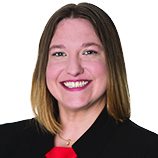Appellate Case Law Update – Invitee or Not?
January 8, 2019 by boydjenerette on News
Charterhouse Assocs. V. Valencia Reserve Homeowners Ass’n, Fla. L. Weekly D 2645 (4th DCA Nov. 28, 2018).
In its recent opinion in Charterhouse Associates v. Valencia Reserve Homeowners Ass’n, Fla. L. Weekly D 2645 (4th DCA Nov. 28, 2018), the Fourth District Court of Appeal addressed the tests for determining the status of a person on the property of another. Specifically, the Court pointed out the differences between an invitee and an uninvited licensee. In analyzing the status of a personal fitness trainer who had been paid and authorized to accompany home owners, the Brownes, in the Valencia Reserve community and who were members of the Valencia Reserve Homeowner’s Association to the community fitness center.
At some point, the Home Owner’s Association enacted a new rule prohibiting private trainers from working in the fitness center and the Association entered a contact with a third-party vender to be the sole provider of fitness services at the fitness center. The Brownes and Charterhouse Associates, as a trustee of a trust in the Brownes’ name, challenged the new rule seeking declaratory relief, injunctive relief, and damages for a breach of their rights under the Homeowner’s Association’s Declaration. The Declaration provided that members of the Association had an easement of enjoyment for owners, family members, guests, tenants, agents and invitees, to enjoy and use association property.
The trial court granted summary judgment for the Association, finding that the personal trainer was akin to a “call girl” as opposed to a “girlfriend sitting at the clubhouse bar,” because, according to the trial court, once the trainer was paid, he was a licensee instead of an invitee.
If you have any questions about this case or would like to refer an appellate matter, please contact our appellate attorneys.
On appeal, the Fourth District concluded the trial court erred in failing to apply the proper test when determining the status of the personal trainer. Additionally, the appellate court concluded that the error in determining the trainer’s status led the trial court to improperly upheld the validity of the new rule as applied and had failed to consider whether the association had authority to enact the rule. In its analysis, the Court reviewed the history of the tests used to determine the status of invitees and licensees.
Notably, the Fourth District pointed to the Florida Supreme Court’s limited definition of licensees, which has remained unchanged and is as follows:
We thereby eliminate the distinction between commercial (business or public) visitors and social guests upon the premises . . . . In doing so, we continue the category of licensees who are [u]ninvited, that is, persons who choose to come upon the premises solely for their own convenience without invitation either expressed or reasonably implied under the circumstances.
Charterhouse, Fla. L. Weekly D 2645 (quoting Wood v. Camp, 284 So. 2d 691, 695 (Fla. 1973)). Based on this definition and the facts of the case, including that the Brownes “expressly invited the trainer to accompany them into the fitness center, he was only on the premises with the Brownes, and did not attempt to gain business from other residents,” and he did not enter or remain on the premises solely for his own convenience, the Fourth District concluded the trainer was an invitee as opposed to an uninvited licensee. The Court noted that the trial court’s focus on the fact the trainer was paid for services, and the economic benefit test, which focuses on whether a person had business relations on the premises, was error.
Thus, when determining whether a visitor to property is an invitee or a licensee, the proper test is the one provided by the Florida Supreme Court in Wood v. Camp, 284 So. 2d at 695. In a nutshell, if the visitor is not on the premises “solely for their own convenience without invitation” the visitor is not a licensee and is an invitee.
Kansas R. Gooden
Partner / Practice Group Leader
Direct: 904.493.3755
Email: kgooden@boydjen.com
Geneva R. Fountain
Associate
Direct: 904.493.3769
Email: gfountain@boydjen.com


